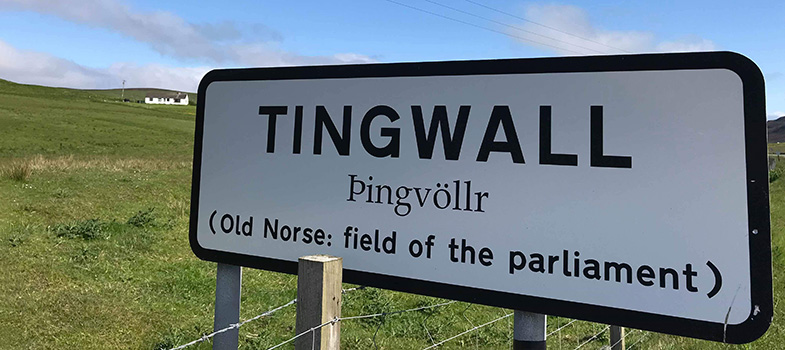1.4 Hert: how people feel about Scots
The Scottish Government in 2010 commissioned the study Public Attitudes Towards the Scots Language [Tip: hold Ctrl and click a link to open it in a new tab. (Hide tip)] (Scottish Government, 2010); its purpose was to "inform policy development for Scots". This impeccably produced study provides a fascinating insight into the opinions and perceptions about Scots among its sample of 1,000 survey participants. It remains the only study of its kind on Scots commissioned by the Scottish Government or any other body.
The study asked respondents to agree or disagree with a number of statements including:
"When people use Scots it doesn't sound nice - it's slang" (26% agreed; 63% disagreed);
"I don't really think of Scots as a language, it's more just a way of speaking" (64% agreed; 30% disagreed).
The data collected by the study on people's opinions about Scots was authoritative and credible. Its key finding in 2010 - that 30% of the participants thought of Scots as a language - would be borne out by the 2011 Census' results showing over 30% of the Scottish population identifying themselves as Scots speakers. (The press at the time chose to highlight the 64% who did not think Scots was a language.)
The study also recorded a minority who considered Scots to be 'slang'. However in the present context of the continuing debate around Scottish Independence (note that both the Public Attitudes study and the last Census were published prior to the Referendum in 2014), opinions about Scots have been expressed in the less measured environment of social media and also in the press.
Negative views offered about the Scots language can be divided into two main categories: that Scots is not a language; and that Scots is an example of nationalist propaganda, as exemplified by the following statements.
"It is purely and simply local slang which differs throughout Scotland."
"Fabricated Scots is just another vehicle for tired old Nationalist grievance."
"Hilariously claiming to be bilingual because he can type like a jakey."
Many supporters of Scots put forward the views that Scots is a language in its own right, and that the Scottish Government should do more to support Scots, which is illustrated in the examples below.
"I agree that Scots deserves official language status. The value to the individual, the group and the nation is significant when all language groups are equal."
"A ‘Scots Language (Scotland) Act’ is necessar tae owercome ongoin discriminashun o Scots fowk, leid an cultur. That wid mak Scots ‘statutory’, an gie ‘Scots’ equaliti wi English an Gaelic (thanks tae the ‘Gaelic Language (Scotland) Act, 2005’)."
"Don’t let politicians lay claim to our words and wrap them in a flag but, if they try to, don’t let that be a reason to deny a big part of your country’s heritage."
And to underline the complexity of this issue, another type of comment on social media suggests that for some people their support or rejection of Scots may have nothing to do with politics as these two statements highlight.
"Why are you linking the Scots Language with Nationalism. It is the language of everyday like, not the language of division."
"This particular supporter of Scotland staying in the United Kingdom likes it when The National prints its articles in 'Scots', even though I don't agree with the vast majority of articles."
But without another study similar to Public Attitudes Towards the Scots Language, it is difficult to say with any certainty if public attititudes now are more positive or more negative towards Scots than in 2010.
Perhaps some conclusions can be drawn based on comments made about Scots on social media and in press since 2014. One is that support for the Scots language is more established and widespread today than previously. And that hostility towards Scots at the present time is less inhibited and more common than in the past.
Activity 7 
The text in this section, Hert, clearly shows that for a language to become widely accepted in its own right it is a complicated matter, and that political, social and cultural context as well as long-held views and experiences have a huge impact on how people perceive the way others express themselves. The many views for and against Scots as a language in its own right and their bearing on the role of Scots in Scottish culture will be a theme running through this course.
To help you prepare for this discussion, take a note of the key arguments you have identified in this section of the course and also note down your own views at this point of your study.
Here just a few questions to get you thinking:
- Why do you think does the question whether Scots is the third indigenous language of Scotland divide people’s opinion?
- What might make this such a contentious topic?
- In what way is Scots and the way it is used different from English and Gaelic?
- Does Scots have an ‘image problem’?
1.3 Een: where Scots is seen in written form
